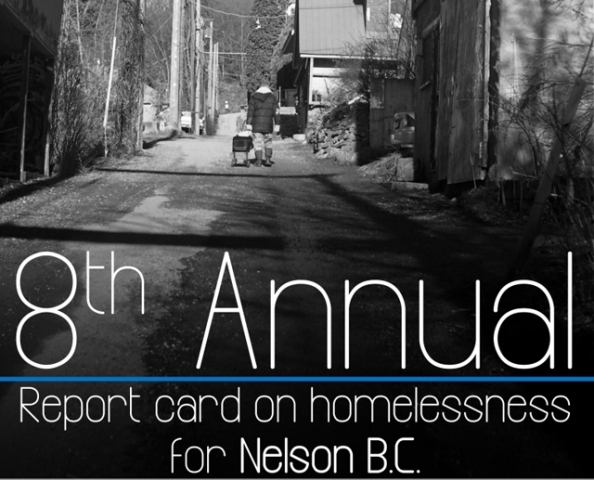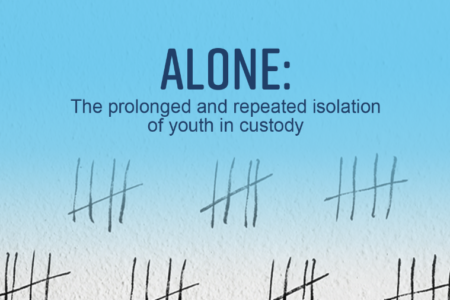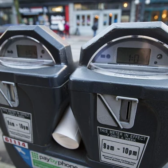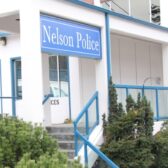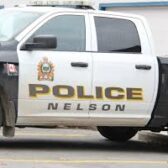Annual Report Card on Homelessness in Nelson released
The Nelson Committee on Homelessness (NCOH) has released the results of its Point In Time Homeless Count and Survey.
In April, NCOH volunteers took to the streets of Nelson to conduct the survey, and the results are “within the speculated range of most service providers in town” according to Ann Harvey of the NCOH.
The report card aims to shed some light on the varying degrees of homelessness in Nelson while also providing some faces and stories to put to the hard facts.
According to the 71 surveys and data from emergency shelters and transitional housing providers for the night, out of the 91 people surveyed 27 were completely without shelter, 13 were using emergency shelters, 22 were in “transitional” housing, 5 were in hospital, correctional care or other public systems, 17 indicated they were couch-surfing, house sitting, or other forms of temporary shelter and 25 did not complete the entire survey but were observed as homeless.
“I think the total numbers that were experiencing some type of homelessness were not a shock but a surprise, when we started peeling back the layers and looking at the different types of homeless people were experiencing it made more sense,” Harvey told The Nelson Daily.
“When you add in the observed homeless who spoke to us about their housing situation but didn’t want to be surveyed, that number [91] bumps up to 116 people and that’s on one night. That was a surprise in terms of those numbers,” she said.
Soaring housing prices on the mainland has caused an exodus into the interior for people who simply cannot afford the outrageous prices in places like Vancouver and the surrounding areas. This fact, coupled with the ever-present mental health and substance abuse issues are direct causes of rising populations of homeless in cities like Nelson.
“I don’t think we’re going through anything different than a lot of towns especially around BC right now, what we’re seeing is just a number of things. It’s currently a ripple effect out from the lower mainland of the incredible rise in housing prices,” Harvey said.
Startlingly low vacancy rates in Nelson (the second worse in the province) coupled with Income Assistance and Benefit Rates that have remained stagnant in the face of rising costs of food and electricity aren’t helping either.
According to the NCOH, “The 8th Annual Report Card highlighted a CMHC (Oct 2015) reported 0% vacancy rate in one and two bedroom rentals, a one-year jump of $100 in advertised rental rates for one-bedroom units from $836 to $938 (May 2016), and BC Consumer Price Index increases in daily living costs like food and electricity.”
Now that we have this information, the big question is where do we go from here?
“What people said they need in terms of services, what they said were the reasons for losing their housing and what they felt were barriers and what they felt would help them in terms of finding permanent, safe housing. All of that is helpful,” Harvey told The Nelson Daily.
Having solid research and facts is a sword in the hand for agencies searching for funding and for all levels of government.
“When agencies try to apply for funding to do things they’ve now got a documented research base now to make that case and also to all levels of government, from local to provincial to federal, that these are the facts that were researched and this is what we’ve found,” Harvey said.
For Nelson this means backing up the need for more housing, and organizations like Nelson Cares and Share Nelson who have put in submissions for possible housing projects at the Lakeside unit at the old motel and the Kootenay Christian Fellowship land behind the bowling alley.
This isn’t limited to just affordable housing either. The report card will also assist in making the case for the mental health and addiction support categories as well.
“The need for health support, mental health but also substance abuse that was revealed in the report card… I know that Anchors has a proposal in to IHA around trying to get some adult support beds, recovery beds, for people going to treatment locally,” Harvey said.
“All those things will be really helpful in the future if they can come through and now there’s a case made for why, even more, that we need it.”



